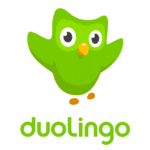
Best Resources to Learn Japanese in 2024: From Language Programs to Videos and Songs
Do you want to learn Japanese but you don’t want to go to a traditional Japanese class?
There are so many different resources out there that you can take advantage of to learn Japanese while also having fun!
We’ve put together a useful list of the best resources to learn the Japanese language from language learning platforms to videos and songs.
Let’s take a look at them!
Contents
- TV Shows and Movies
- Learning Platforms
- Music and Radio
- Books and News
- Vlogs and YouTube Channels
- Bonus: Other Ways to Learn Japanese Online
Download: This blog post is available as a convenient and portable PDF that you can take anywhere. Click here to get a copy. (Download)
TV Shows and Movies
Netflix
Summary: Content streaming platform where you can access movies and TV shows from all around the world with dubbing and subtitle options.
Price: $ basic version, $$ premium version
Netflix offers plenty of authentic Japanese-language content, all you have to do is search “Japanese movies” or “Japanese TV shows” to see some great options.
Netflix also has a “Japanese Movies” genre which also lists TV shows and animated works.
Since it has lots of subtitling options, Netflix content is accessible to beginner through advanced level Japanese students. If you need a little help you can use English subtitles to help you understand the content, and if you’re feeling confident, try watching with Japanese subtitles.
AsianCrush
Summary: AsianCrush is a content streaming service with movies and TV shows from all over Asia.
Price: Free
AsianCrush is a great source for Asian movies and has plenty of Japanese content for all levels.
The content on AsianCrush is subtitled in English, so if you’re an advanced student, you may want to try a different resource. Other than that, its material is appropriate for any level of Japanese learning.
While everything is labeled as a movie, some TV shows also sneak in. For example, anime fans can enjoy “Pop Team Epic TV Special,” which is actually a TV show.
AQ Stream
Summary: AQ Stream is a website that live streams channels so you can watch them right from your home.
Price: Free
With AQ Stream you can stream live Japanese TV on your computer!
Choose from several different channels, including TV Asahi, TV Tokyo, Fuji TV, NHK World and more.
AQ Stream even offers a channel chat on the right side of the screen as you watch. While the chat wasn’t particularly active when we checked it out, you never know—you may get lucky and be able to talk to someone!
Since this is real Japanese TV, there aren’t supportive resources, like subtitling, so it’s best for advanced students.
Learning Platforms
Duolingo Japanese
Summary: Duolingo is a language learning app that gamifies Japanese learning with fun activities that help you build your vocabulary.
Price: Free, $ premium version
On Duolingo the idea is to learn Japanese in your spare time, right from your phone.
Lessons vary but mostly begin with a kanji character and a list of possible romaji matches for you to select.
You can also practice your speaking and listening skills by verbally pronouncing a word or by matching the correct kanji to a word spoken through the app.
Duolingo even lets you take a placement test before starting your lessons to see just where you are on your Japanese-learning journey.
Check out our Duolingo review here.
FluentU
Summary: Video-based language learning app that uses authentic native content to immerse you in the Japanese language with interactive subtitles, personalized flashcards and quizzes.
Price: $$ subscription, free trial available
One of the best ways to learn Japanese is to consume native media and see how the language is used by native speakers.
FluentU uses authentic content like movie clips, music videos and inspiring talks to immerse you in the Japanese language. Each video comes with interactive subtitles which you can hover over to find more information about the words used, such as definitions and pronunciation information.
You can watch the videos in any order or use the lessons if you prefer some more structure.
Busuu Japanese
Summary: A language learning app with organized, condensed Japanese courses and the option to learn with native speakers.
Price: Free (limited access), $ premium subscription
Like Duolingo, Busuu is great for learning Japanese on the go.
The Japanese program includes full language courses condensed into what they call “bite-sized lessons perfect for everyday life, work and travel.”
The learning program itself focuses strongly on learning Japanese through conversations with native speakers. It also splits up the learning into easy-to-digest lessons, each of which teaches one new concept in a useful, conversation-oriented way.
As Busuu is short and intense, it’s great for those who want to learn Japanese quickly!
Click here to read our Busuu review.
Japanese Courses at Udemy
Summary: An online course platform with many Japanese courses available to choose from.
Price: $$-$$$$
Udemy offers a range of Japanese courses for low prices complete with accurate and user-driven reviews.
Any level of Japanese learner can benefit from Udemy’s Japanese courses. Just sort the lessons by difficulty or search by keywords (such as “Japanese vocabulary” or “business Japanese”) and take a look at what each course offers.
A few great courses to check out from Udemy include “Online Japanese Beginner Course,” “Online Japanese N3 Course” and “Online Japanese N1 Course.”
Genki
Summary: An online Japanese course which offers free content for self-study, a variety of apps to use on the go and paid resources such as textbooks.
Price: Free, $$ paid content
Genki is a popular online resource used by many Japanese learners. It’s essentially a series of resources for learning elementary Japanese that focuses on the four main language categories: reading, writing, speaking and comprehension. Each volume of Genki contains around 23 lessons.
You can purchase the physical Genki textbook or take advantage of the Genki apps, which focus on vocabulary flashcards, kanji flashcards and conjugation flashcards.
The apps aim to teach the basics to beginners, so intermediate and advanced learners may not necessarily need them.
Nihongo Pro Live Lessons
Summary: An online platform which offers private Japanese lessons with native speakers.
Price: $$-$$$, free trial lesson
If what you’re looking for is to practice Japanese with a native speaker, Nihongo Pro offers online private Japanese lessons.
Each live one-on-one video lesson lasts approximately 50 minutes and is led by an experienced professional Japanese teacher.
Lessons are held in online classrooms that were specially designed for learning Japanese.
Before committing, you can book a free trial lesson.
Nihongo Pro also has a bunch of free learning content, such as quizzes, kanji search and word games.
Visualizing Japanese Grammar
Summary: A Japanese grammar website with free lessons, quizzes and word lists.
Price: Free
Japanese grammar is one of the most difficult parts of learning the language. This resource will make it a little easier by breaking it down into chunks.
This somewhat outdated but still useful website from George Washington University contains 66 units on Japanese grammar.
Complete each lesson then take the quiz to make sure you understood the material. Units also come with word lists, so you can learn vocabulary as you learn grammar points.
This resource is great for beginners and intermediate learners.
Rocket Languages Japanese
Summary: A language learning app that offers Japanese audio and language and culture lessons, pronunciation guides, quizzes and vocabulary.
Price: $$$$, free trial available
Rocket Languages Japanese boasts interactive audio lessons, pronunciation guides, quizzes, vocabulary and a handy forum for connecting with other learners. It also provides specialized sections where you can learn Japanese salutations, phrases, telling the time, language software recommendations and more.
Rocket Languages’ free Japanese content includes vocabulary words and phrases with accurate audio clips.
If you opt for a premium membership, the paid content includes interactive audio lessons, voice recognition-based courses, exclusive flash cards and certification tests.
For more information, check out our Rocket Languages review.
Wasabi
Summary: An online Japanese language learning website that offers lessons with native speakers in addition to free self-study content such as grammar sheets and pronunciation lessons.
Price: Free self-study, $$$-$$$$ lesson plans, free trial lesson available
Wasabi offers two main ways to learn Japanese: through one-on-one lessons with a Japanese linguist or by browsing Wasabi’s free study materials to cultivate your own lesson plan.
Wasabi offers a number of different premium plans for different prices with a focus on reaching CEFR C1 Level.
The free self-study plan includes a range of materials such as grammar sheets, podcasts, pronunciation, manga and more.
The lesson option is ideal for beginners, while the free source materials are handy tools for more advanced learners.
Mango Languages
Summary: Mango Languages offers a number of useful, interactive features, including dialogues, grammar lessons and cultural notes.
Price: Free, has monthly subscriptions
Mango Languages offers a Japanese course developed by linguists and native Japanese-speaking instructors.
The material is broken down into bite-sized lessons that aim to improve language skills and cultural understanding. This makes it easy to fit learning Japanese into your schedule, whether you have an hour to study each day or only a couple of minutes.
One of the most immersive aspects of this particular Japanese software immersion program is that it encourages you to speak as well as listen. You will frequently have the opportunity to record yourself saying words and phrases and compare your pronunciation to that of a native speaker.
You can even see how the wavelengths line up—a pretty useful tool for nailing the unique rise and fall of each word.
Human Japanese
Summary: Human Japanese is a software immersion program that describes itself as a “sensei-in-a-box.”
Price: $
Human Japanese lessons focus on breaking down information in a friendly manner while making comparisons to English to help you better understand key concepts.
The program begins completely from scratch, starting from correct Japanese pronunciation and other basics. It then builds on your learning to create more complex sentences, learn more difficult vocabulary and learn key grammar points. Over 1,800 audio recordings help guide you through the levels of learning.
There are plenty of examples throughout the lessons, as well as easy-to-understand sentence breakdowns. End-of-chapter reviews test your learning in a fun, engaging way.
Human Japanese can even help you learn the writing system (including kanji) using animations and quizzes.
Clozemaster
Summary: On the surface, Clozemaster may seem like a simple quiz, but if you look carefully, you will see that it packs an immersive punch.
Price: Free, has monthly and yearly subscription options
To get the most out of Clozemaster, you will need to know common Japanese characters. It’s also best to create an account since this will have the program focus on the most common words first and track your progress.
Clozemaster works like a quiz. While studying vocabulary, you can choose a multiple-choice or text-input test. When you get a question wrong, you will likely see it again. You can also listen to phrases to improve your listening skills and pronunciation.
Already understand something? Check it off and you will not see it again. With over 32,000 words in the database, there is plenty of material to study and the repetition it provides offers easy immersion.
Music and Radio
TuneIn
Summary: TuneIn is a news, radio and podcast streaming service that offers content from all around the world, including Japan.
Price: Free, $ premium version
Japanese learners can practice their listening skills by streaming live radio stations direct from Japan.
On TuneIn, while most of the stations feature popular Japanese music, you’ll also find more varied options, like the Japanese Hiphop/R&B show and other radio stations.
While listening to live radio is best suited for intermediate and advanced students, beginners can also enjoy it. In fact, just by having the music playing in the background, you’ll be creating an immersive environment.
Online Radio Box
Summary: Online Radio Box is a free platform that you can use to stream Japanese radio from wherever you are in the world.
Price: Free
Need more radio stations? Online Radio Box has them in droves.
One unique benefit of Online Radio Box is that you can select radio stations by region, allowing you to familiarize yourself with regional accents or trends. Plus, there are plenty of news and talk channels if you’d rather listen to spoken Japanese than to songs.
Since these radio stations are in Japanese and lack support for anyone struggling with the language, they’re best suited for intermediate and advanced learners.
Spotify
Summary: Spotify is an audio streaming platform that offers listeners music, podcasts and radio from all over the world.
Price: Free, $$ premium version
Spotify is home to plenty of Japanese playlists, so if you’re already using it to enjoy your favorite tunes, you can add some Japanese education to your listening.
However, some of the content listed in “Spotify Japan” is in languages other than Japanese. To find material in Japanese, pay careful attention to the title and image of the playlist.
You can also find some Japanese podcasts on Spotify, like “Learn Japanese” by Lindsay Does Languages and the “Let’s learn Japanese from small talk” podcast.
Universal Music Japan
Summary: Universal Music Japan offers free Japanese music and audio content on their YouTube channel.
Price: Free
YouTube can also be a great source for Japanese music, as evidenced by this terrific YouTube channel.
The channel offers plenty of music videos of popular songs. While there are some English tunes, there are also plenty of Japanese songs to choose from, like Luna Sea’s “Higher and Higher.”
Intermediate and advanced students will be most comfortable with this authentic content, but beginning students might also give it a try for immersion and to expose themselves to the culture and popular music of Japan.
Books and News
Aozora Bunko
Summary: Aozora Bunko is a free online library of Japanese fiction and non-fiction books.
Price: Free
Aozora Bunko is an online library of free Japanese books.
The site is entirely in Japanese and so it can be hard to navigate for beginners. In addition, since much of the literature is comprised of classics, the books mostly use advanced-level vocabulary, so this option is best for advanced students.
However, if you’re ready to put your reading skills to the test, Aozora Bunko has some wonderful options such as hundreds of stories by renowned writer Ryunosuke Akutagawa.
Project Gutenberg
Summary: A free digital library of books available in many different languages, including Japanese.
Price: Free
Project Gutenberg is one of the most well-known sources for free books online and it has many Japanese books!
Japanese students can read classic works, like Kafu Nagai’s “あめりか物語” (“American Stories”).
While suited to an advanced level, the interface is in English so beginners and intermediate learners could try to read using a translation tool, like Readlang.
Another way to make reading books in Japanese more approachable is to select a work you’ve already read in English.
Asahi Shimbun
Summary: The website for the Japanese national newspaper Asahi Shimbun offers you access to Japanese news and stories on the go wherever you are.
Price: Free
Asahi Shimbun is a popular national newspaper in Japan and you can read or watch news stories online from the comfort of your computer!
Since these stories are intended for well-educated native speakers, this resource is best suited for advanced speakers. However, if you have the skills for it, you can read stories like news of the opening of a new hot spring resort or that time former U.S. President Trump traveled to Japan to watch a Sumo wrestling match.
BBC Japan
Summary: BBC Japan covers the latest news and events happening in Japan and across the world in the Japanese language.
Price: Free
BBC Japan offers both Japanese and world news, which is a great way for advanced students to stay informed of current events while practicing their Japanese.
Since news stories often use advanced, thematic vocabulary, reading the news can be a great way to practice reading while also learning new vocabulary.
The BBC Japan website offers a clear, text-based format that works well with translation services, so beginning and intermediate students can also use the site with a little extra support, like Google Translate or Readlang.
Vlogs and YouTube Channels
hajime
Summary: A popular Japanese YouTuber who uploads funny content such as challenges and sketches.
Price: Free
Hajime is a very popular Japanese YouTuber with over 10 million followers.
He posts funny videos like challenges and sketches, such as when he made a slime bath.
The videos have a lot to offer intermediate and advanced students. Captioning is often available in Japanese to allow you to read along, and key words frequently appear on the screen.
While the language level is best for intermediate and advanced students there’s often plenty of visual context, so beginners can also enjoy these fun videos.
HikakinTV
Summary: A popular Japanese YouTube channel that focuses on entertaining challenges.
Price: Free
HikakinTV is another popular Japanese YouTube channel. Much like hajime, this channel focuses on comedy and entertaining challenges.
Practice your Japanese listening skills by watching this video which shows how many things you can get if you play 100 crane games in a row!
This channel is best for intermediate and advanced Japanese students. Videos tend to offer only auto-generated subtitles, which are sometimes inaccurate. However, key words and phrases do sometimes appear on screen, which is helpful for learners.
Kan & Aki’s Channel
Summary: A Japanese channel that offers a range of content from children testing toys to daily vlogs.
Price: Free
This channel features several children who test toys, try food and have fun.
For Japanese students, the channel will allow them to practice listening and study vocabulary. For example, Japanese students might watch the kids’ review of a new Anpanman kitchen playset.
Some of the channel’s most popular videos have English subtitles, making it easier for students to follow along.
The videos that don’t have subtitles are great for intermediate students who will be able to understand much of what is being said.
Sen, Momo, Ai & Shii’s Channel
Summary: A Japanese family YouTube channel that offers a range of videos from children testing toys to travel vlogs.
Price: Free
Sen, Momo, Ai & Shii’s Channel is a great YouTube channel featuring Japanese children who review toys, play and travel.
Since the children are speaking, the vocabulary is suitable for most levels.
Videos don’t offer English captioning, so beginners could be a little overwhelmed. However, there isn’t a lot of speaking in most of the videos, and there’s usually enough context to understand what’s happening.
Enjoy some fun videos like the one in which the kids make shaved ice and then sample their creations.
Bonus: Other Ways to Learn Japanese Online
In addition to using these resources, there are many other ways you can learn Japanese online! Here are three ideas for where to go next:
- Join learner forums. Reddit’s popular “Learn Japanese” learning board is a great place to start.
- Read Japanese content. These can include online books, manga, social media and any other reading material you enjoy!
- Practice Japanese with native speakers. Practicing with a native speaker is one of the best ways to improve your language skills and gain confidence while also making friends in the process!
Having a wide range of resources for learning Japanese isn’t just helpful—it’s vital.
These resources will make Japanese learning fun and immersive!
We suggest trying out all the resources in this list to find which one works best for you!
Download: This blog post is available as a convenient and portable PDF that you can take anywhere. Click here to get a copy. (Download)























